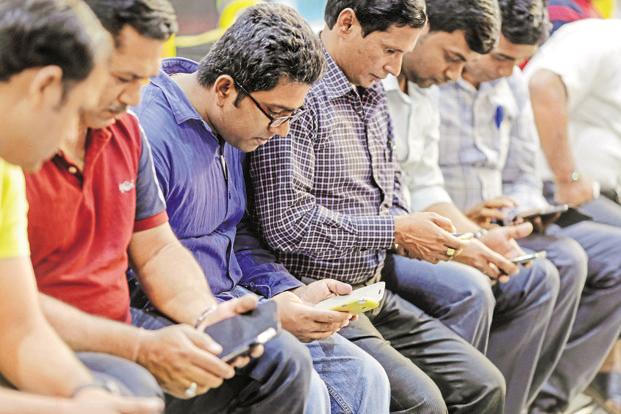According to an India Cellular & Electronics Association (ICEA) report, mobile handset manufacturing in India could become a USD 230 billion export-oriented industry by 2025, promising 47 lakh jobs, provided the government ensures the required fortification in policy in terms of tax incentives and ease of doing business.
The report says that the Indian mobile manufacturing industry has been continuously growing at a fast rate supported by durable domestic demand. Since 2014, 120 manufacturing plants have been set up in India. India manufactured about 225 million mobile phones in 2017, amounting to USD 20 billion, as opposed to 58 million mobile phones manufactured in 2014. Moreover, a prime of this amount comes from manufacturing for a domestic demand. According to the report, only USD 100 million worth devices were exported in 2017.
These numbers show an ecosystem waiting to explode with opportunity, whether it be jobs, raw material supply, or sales. According to consulting firm EY, Indian smartphone users are likely to reach 650 million by 2022, their average data usage going up to 18 GB per day. EY has predicted that 5G’s faster data speed will bring with it fresher applications, exposing the consumer to state-of-the-art business models, facilitating collaborations across industries.
The Most Exciting Phone for Gamers This Diwali, Xiaomi Black Shark Helo
A KPMG report has also projected a similar scenario for India, maintaining that the country will touch USD 1 trillion by 2022. The report’s projection for data usage by Indians is five times more by 2023. It further said that digital diversity in the online audience will take the 225 million current market to 550 million by FY23.
Accordingly, Airtel recorded a 25% growth in the past 6 months reaching 7.5 Mbps download speed. In fact, according to Open Signal’s November report, Bharti Airtel has logged the highest download speeds in India for 3G and 4G together at 7.53 Mbps, while Reliance Jio, Vodafone, Idea, and BSNL logged speeds of 5.47 Mbps, 5.20 Mbps, 4.92 Mbps and 2.70 Mbps respectively. Measuring only 4G download speeds of the operators, Airtel was seen heading the race with 9.96 Mbps speed, while Vodafone and Idea’s 4G download speeds were faster than Jio’s speed of 5.47 Mbps.
Chinese manufacturers are cashing in on Indian demand for smartphones. In fact, the Indian consumer has spent on the plus side of INR 50,000 crore to buy Chinese brand of smartphones in FY18, according to industry figures. This amount has doubled from last year. Considering that Chinese brands are ruling the Indian smartphone market, this trend is expected to continue.
More than half of the complete Indian smartphone market in sales attributes to Xiaomi, Oppo, VivoNSE 0.00 %, and Honor, all Chinese. Other brands trending like Lenovo-Motorola, One-Plus and Infinix, are also Chinese.
The sales strategy Chinese brands employ is to launch high-specification models at prices lower than South Korean, Japanese, and Indian companies. Having established themselves as global brands, they are well aware that the Indian consumer always seeks a multi-national brand over a domestic one, and they make more sales.
Indian Smartphone Generation Prefers Entertainment Over Sports and Lifestyle: Report
In yet more data revealed by Canalys, India’s smartphone market has contracted the second time in its history, as results reveal that it has contracted at the rate of 1% per year in the July-September quarter to 40.4 million unit shipments, the main reason being a late Diwali in the fourth quarter, which has slowed shipments in the third quarter. Yet, India’s smartphone shipments have grown 24% sequentially and 5% yearly, supported by strong shipments ahead of the festive season.
Still, Chinese phone manufacturer, Xiaomi, shows 29.8% market share in India, heading the smartphone race in India for the fourth time in a row. In fact, Xiaomi recorded a YoY growth of more than 30% in Q3 2018, having shipped more than 12 million smartphones.
After Xiaomi, came Samsung, having shipped 9.3 million smartphones in Q3, taking 23% of the market, which seems to be getting hotter by the month. On third and fourth position, are Vivo and Oppo, having shipped 4.5 million and 3.6 million, respectively.
Prospective investors should train their eyes on the Indian smartphone and data space, if they haven’t already, for the future seems to be bringing a plethora of opportunities to exploit.












